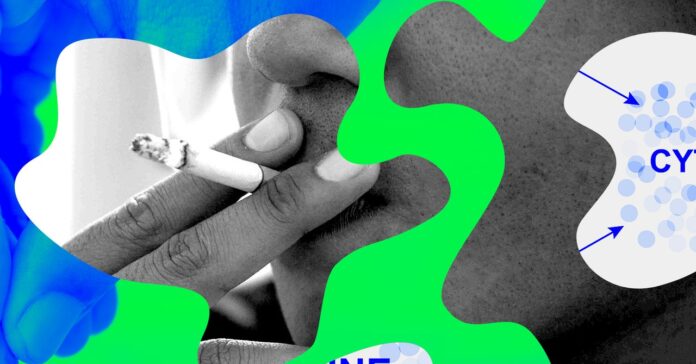To determine why and the way the impact lasts for years after any individual smokes their ultimate cigarette, Duffy’s group grew to become to their donors’ DNA. Reputedly the entirety from wildfire smoke for your oldsters’ trauma has been connected to epigenetic adjustments—bodily manipulations of the DNA molecule that transfer genes on or off. Positive sufficient, the long-term impact of smoking at the immune reaction additionally seems to be connected to epigenetics.
Duffy admits that decoding those results can get bizarre. It’s tempting to think about the extra reactive immune gadget observed in people who smoke as “excellent”—whilst you’re injured or unwell, momentary irritation is helping your frame heal. However an overblown reaction that lingers as soon as the risk is long past can result in continual irritation or autoimmune illness.
Giving up smoking brings the inflammatory reaction again to the place it will had been with out cigarettes, however smoking-related epigenetic adjustments could also be more difficult to opposite, suspects Sheena Cruickshank, an immunologist on the College of Manchester. The affected immune cells are long-lived, sticking round within the bloodstream for years. Ex-smokers can have to hold strains in their previous cigarettes with them till the ones cells die.
After all, smoking conduct doesn’t occur in a vacuum. All 1,000 donors on this find out about are living extensively numerous lives formed via a dizzying choice of issues past cigarettes. “We’re uncovered to such a lot of various things that it’s tough to tease them aside,” says Adam Lacy-Hulbert, an immunologist on the Benaroya Analysis Institute in Seattle, Washington. This find out about corrected for age and intercourse, however that no doubt doesn’t account for the entirety. Cruickshank says that, whilst the impact of someone environmental issue—smoking integrated—could also be modest, those results can pile on best of one another and result in large adjustments to the immune gadget.
Those effects can have necessary implications for vaccine supply. We already tailor vaccine suggestions to express age teams as a result of irritation is understood to extend as we grow older (immunologists also have a time period for this: “inflammaging”). Lacy-Hulbert wonders whether or not we should believe environmental elements like other people’s smoking conduct (previous and provide) when making plans the timing or components in their vaccinations. “Immune age, like common outdated age, simply marches on—issues worsen and worse through the years,” Lacy-Hulbert says. If smoking is related to kind of the similar level of alternate to the immune reaction as growing old, he speculates, “You could believe that smoking may just upload years for your immunological age.”
Duffy and his colleagues on the Milieu Intérieur challenge have already got more than one follow-up tasks underway, amassing information from donors in Africa and Asia in addition to from kids and adults over 75 years outdated. They’re additionally making ready a 10-year follow-up file with 415 of the unique 1,000 donors sampled within the Nature find out about to peer how adjustments to their way of life affected their immune reaction over that decade. Shifting ahead, Tsang hopes that long run research run particular experiments to check a few of these associations within the lab, to dig into how our surroundings and behaviour shapes our immune gadget.
Within the interim, Cruickshank says, one of the simplest ways to stay your immune gadget wholesome is to keep on with the elemental recommendation you’ve most probably been informed 1000 instances: consume a numerous, minimally processed vitamin; transfer your frame; destress; and get a number of sleep. “In relation to being wholesome, smoking is most probably the worst factor you’ll be able to do,” Duffy provides.
Whilst we nonetheless don’t know precisely how long-lived the affect of smoking is, or whether or not it may be reversed, there’s some excellent information: After quitting, the impact of smoking at the immune reaction turns out to vanish with time. “The most efficient time to prevent smoking is now,” Duffy says. “It’s all the time a great time.”





 #shorts #shortsfeed #nature #youtubeshorts #iciness
#shorts #shortsfeed #nature #youtubeshorts #iciness